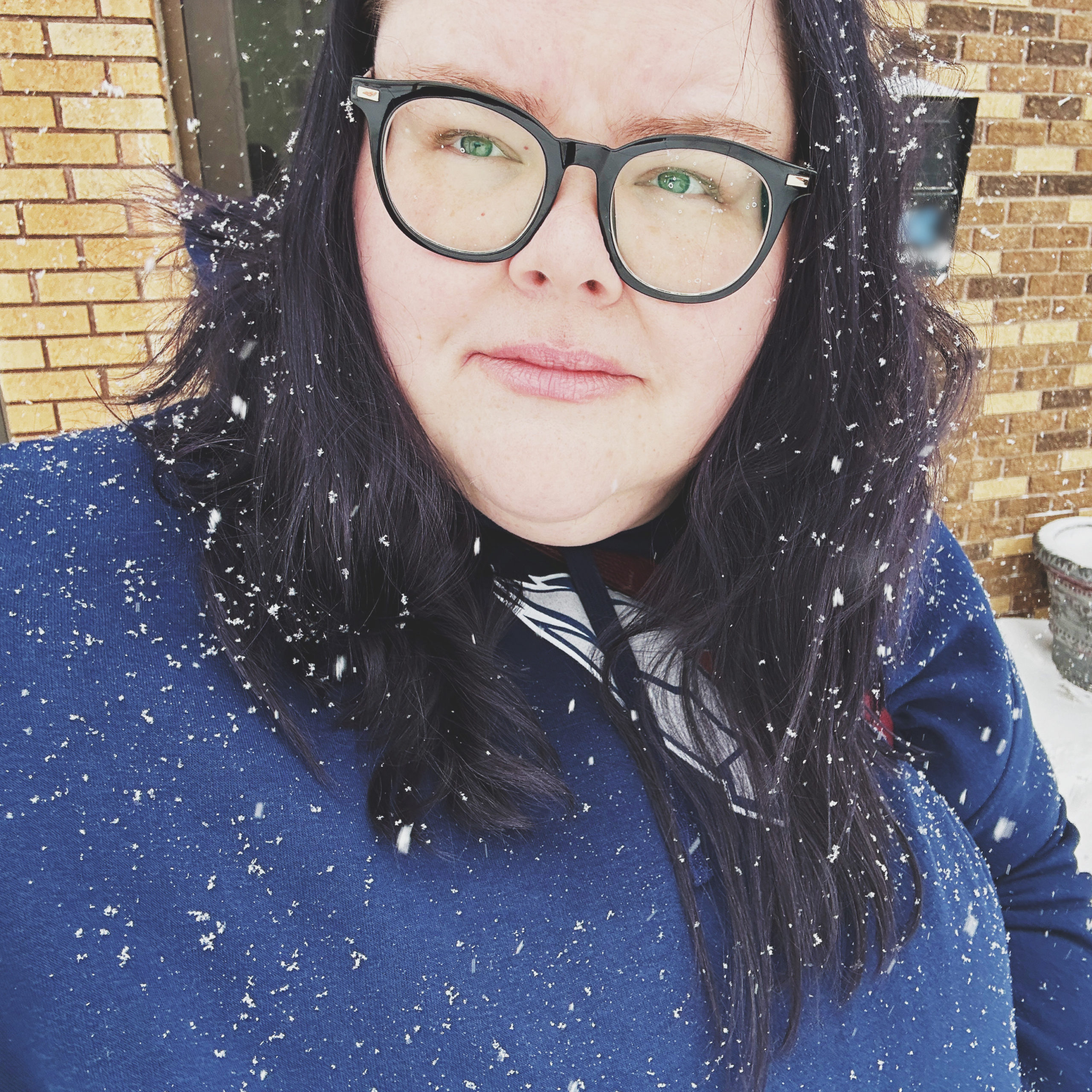|
|

  JAMZ: Okay, so I spent most of February playing “Uptown Funk” and Azealia Banks’ “212” on repeat, but I also got super into SBTRKT’s “Wildfire” which is best played at near ear-splitting volume while doing a kind of flailing, loose-limbed dance that involves far too much ribcage. March was spent listening to my extensive love song playlist while we ready wedding stuff, but it also brought me “Fade into You” from Nashville which I found in the comments of a wedding playlist post. It’s like… goth country, romantic and lingering. So pretty. JAMZ: Okay, so I spent most of February playing “Uptown Funk” and Azealia Banks’ “212” on repeat, but I also got super into SBTRKT’s “Wildfire” which is best played at near ear-splitting volume while doing a kind of flailing, loose-limbed dance that involves far too much ribcage. March was spent listening to my extensive love song playlist while we ready wedding stuff, but it also brought me “Fade into You” from Nashville which I found in the comments of a wedding playlist post. It’s like… goth country, romantic and lingering. So pretty.
  ALBUM: Working full-time has totally destroyed my music finding and album listening. I’ve turned into a single-loving repeater and a safe-for-work Pandora station listener. But! I have revisited Natalia Kills’ Trouble quite a bit since it’s on my phone and it’s just a great listen, especially in the car with the windows down now that the temperature is often above 40! “Rabbit Hole” is my jam. I’ve been hitting this best of Miles Davis because I frequently turn to jazz when I’m feeling stressed, since lyrics can make me feel overwhelmed while I’m working. “Blue in Green” is a forever fave. ALBUM: Working full-time has totally destroyed my music finding and album listening. I’ve turned into a single-loving repeater and a safe-for-work Pandora station listener. But! I have revisited Natalia Kills’ Trouble quite a bit since it’s on my phone and it’s just a great listen, especially in the car with the windows down now that the temperature is often above 40! “Rabbit Hole” is my jam. I’ve been hitting this best of Miles Davis because I frequently turn to jazz when I’m feeling stressed, since lyrics can make me feel overwhelmed while I’m working. “Blue in Green” is a forever fave.
  MOVIE: Crys and I both really loved Gone Girl and I was so grateful to see that they fixed some of the things I’d found so lackluster/frustrating about the book. I thought Rosamund Pike was fantastic and can’t wait to see Carrie Coon in more stuff. Gone Girl was great, but Whiplash I really loved. In the first few minutes I thought this was going to be one of those media experiences I hate, where I am frustrated utterly for the main character and end up furious, but the payoff in this is so intensely, weirdly satisfying. I want to watch Miles Teller mouth “Fuck you” while drumming angrily until I’m dead. And then it should be the holographic projection that runs over my grave 24/7. MOVIE: Crys and I both really loved Gone Girl and I was so grateful to see that they fixed some of the things I’d found so lackluster/frustrating about the book. I thought Rosamund Pike was fantastic and can’t wait to see Carrie Coon in more stuff. Gone Girl was great, but Whiplash I really loved. In the first few minutes I thought this was going to be one of those media experiences I hate, where I am frustrated utterly for the main character and end up furious, but the payoff in this is so intensely, weirdly satisfying. I want to watch Miles Teller mouth “Fuck you” while drumming angrily until I’m dead. And then it should be the holographic projection that runs over my grave 24/7.
  BOOK: When You Reach Me is the best and most moving book I’ve read thus far this year. It’s got a great narrating lead and excellent secondary characters and a rich plot and wonderful details and, like I said on Goodreads, I wish so badly that I had written it. What an awesome, perfectly, gently devastating book. I did not love The Paper Magician, but I did enjoy reading it more than, I think, every other book I read in March. I thought the magic was interesting, but found the characters lacking. There was some great anticipatory romance stuff — I even got kicky-feet! — but it played out too easily and too quickly. I prefer some torture with my romance, thank you, but still a fun read. BOOK: When You Reach Me is the best and most moving book I’ve read thus far this year. It’s got a great narrating lead and excellent secondary characters and a rich plot and wonderful details and, like I said on Goodreads, I wish so badly that I had written it. What an awesome, perfectly, gently devastating book. I did not love The Paper Magician, but I did enjoy reading it more than, I think, every other book I read in March. I thought the magic was interesting, but found the characters lacking. There was some great anticipatory romance stuff — I even got kicky-feet! — but it played out too easily and too quickly. I prefer some torture with my romance, thank you, but still a fun read.
 TV: The Parks and Recreation finale was so, so good and was so sweet and so positive which is what the show always was when it was at its best. I’ve talked about how much I love P&R plenty before, but that finale was a really wonderful way to end a really wonderful show. TV: The Parks and Recreation finale was so, so good and was so sweet and so positive which is what the show always was when it was at its best. I’ve talked about how much I love P&R plenty before, but that finale was a really wonderful way to end a really wonderful show.
 We’ve also been watching Unbreakable Kimmy Schmidt on Netflix, slowly, and I really love it. I think relentless positivity in the face of adversity is just something I’m really attracted to generally and I love how well Ellie Kemper’s face carries it off. Kimmy wears everything on her sleeve and I love watching her react to the world around her. I also love Jane Krakowski — generally of course, but particularly in this — because even she isn’t immune to Kimmy’s positivity. The speech she gives her stepdaughter about leaving Kimmy alone was like, genuinely moving. So good. We’ve also been watching Unbreakable Kimmy Schmidt on Netflix, slowly, and I really love it. I think relentless positivity in the face of adversity is just something I’m really attracted to generally and I love how well Ellie Kemper’s face carries it off. Kimmy wears everything on her sleeve and I love watching her react to the world around her. I also love Jane Krakowski — generally of course, but particularly in this — because even she isn’t immune to Kimmy’s positivity. The speech she gives her stepdaughter about leaving Kimmy alone was like, genuinely moving. So good.
 BATH & BEAUTY: I grabbed a couple of the Kate Moss by Rimmel matte lipsticks while we were in Billings in mid-February and I have been obsessed ever since. But, like, I can’t find them anywhere on the entire internet, which is genuinely terrible. I bought a deep red, a Ruby Woo-esque red, and an amaaaaaazing nude (#104, if you happen to see these somewhere!) that has pretty much replaced my usual Revlon ColorBurst Balm Stain in Honey as my MLBB because it’s matte. They have a weird-ish perfume smell, but I love them so much I don’t really care and will definitely grab some back-ups if I see them in stores again. BATH & BEAUTY: I grabbed a couple of the Kate Moss by Rimmel matte lipsticks while we were in Billings in mid-February and I have been obsessed ever since. But, like, I can’t find them anywhere on the entire internet, which is genuinely terrible. I bought a deep red, a Ruby Woo-esque red, and an amaaaaaazing nude (#104, if you happen to see these somewhere!) that has pretty much replaced my usual Revlon ColorBurst Balm Stain in Honey as my MLBB because it’s matte. They have a weird-ish perfume smell, but I love them so much I don’t really care and will definitely grab some back-ups if I see them in stores again.
I recently received an Influenster VoxBox* with some of the Dessange line from Target and after three weeks with the shampoo and conditioner I’m actually really happy. I like the way they smell (in the bottle, it’s not super great on my hair, but it also doesn’t last long) and my hair did actually seem a little glossier and brighter. My hair is really fine and really flat, so best of all, they don’t weigh my hair down, but still manage to make it soft and detangled. I’ve also now tried the Color Correcting Cream two Sundays in a row and I’ll definitely be buying it again. It not only keeps the gold tones in the dyed ends of my hair at bay, but it also seems to brighten the darker, natural dishwatery blonde at my roots. Awesome.
 STUFF: Despite the oil slow-down, we’re is still expanding and we got a Culver’s recently, which rules and their Chocolate Covered Strawberry Concrete Mixer is pretty much the most best thing I’ve eaten in forever. Their custard is rich, but not overly sweet, and the combination of strawberry and chocolate is perfect. The beeeeeeeeeeeeest. STUFF: Despite the oil slow-down, we’re is still expanding and we got a Culver’s recently, which rules and their Chocolate Covered Strawberry Concrete Mixer is pretty much the most best thing I’ve eaten in forever. Their custard is rich, but not overly sweet, and the combination of strawberry and chocolate is perfect. The beeeeeeeeeeeeest.
Also, most of the restaurant openings here have gone less than smoothly, but Culver’s seems to be the exception. The service is really friendly and seems organized and efficient, which is pretty much unheard of here, even for places that have been open forever. It’s kind of insane how much you learn to live with terrible service and how stark the contrast is when you have good service again.
LINKS: This photo series, this comic, this post from an eternal fave – Epiphora, “The Babies in the Freezer which I read right after Ghost Child, This Is My Baby Right Now by Mia Mercado who is on the verge of blowing up and being too awesome to respond to me on Twitter anymore, this A Softer World, #thedress and the Rise of Attention Policing, My Eating Disorder Had Nothing to Do with Barbie or the Media, How Flawless Became a Feminist Declaration, Remembering John Jerde — I am obsessed with the architecture of public spaces and I want to learn everything about this dude, In Defense of Literal Ass-Kicking Heroines, this A Softer World, On Confidence and the Kimye Effect, and 5 Irrefutable Reasons Why “Tank Girl” Is Absolutely Not A Terrible Movie.
*: I got these products for free from Influenster for testing purposes.

This here is the first post in a new series for 2015 where I talk about things I loved this month! Because I don’t spend enough time doing it at the end of the year. Obviously.
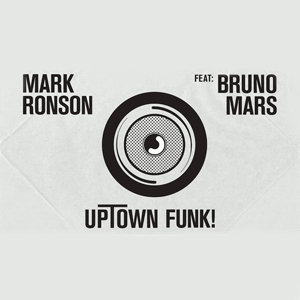
JAM: Because I have functioning ears and have also been alive for the last two months, my favorite jam is currently “Uptown Funk”. Bruno Mars is everything and it’s just SO GOOD. I love late 70s/early 80s era funk and “Uptown Funk” hits all the right notes of nostalgia and homage while still feeling really fresh and new and alive. Even with as much airplay as it’s been getting and as much as I’ve been listening to it on my own, I am still not sick of it. Also, the performance from Ellen was too much and Crystal won’t stop watching it at work and getting overly amped. AMAZON | ITUNES
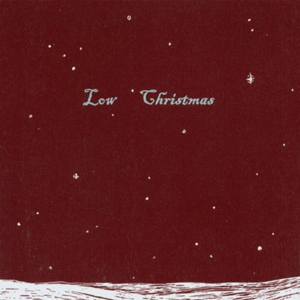
ALBUM: This may seem seasonally inappropriate, but I think if you listen you’ll find that Low’s Christmas is actually wildly appropriate for January when it’s dreary and cold and Christmas is over and winter seems as though it will never end and you are going to be trapped in the cold and snow for so long that you transform wholly into some kind of frost creature. “Taking Down the Tree” is definitely my favorite here, but “Long Way Around the Sea” is also excellent. ITUNES
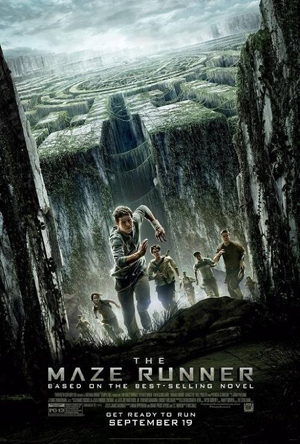
MOVIE: I only watched two movies in January — We Need to Talk About Kevin and The Maze Runner — and though Kevin was great, The Maze Runner wins for being more fun (Obbbbviously!) and also improving upon the weak-ass book that spawned it. I like Dylan O’Brien enough, but I thought the secondary characters were a lot more compelling and drove my interest more than I would’ve bet. I didn’t love it, but I was just amazed how much better it was than the book. That’s rare, so it’s worth noting. AMAZON | ITUNES
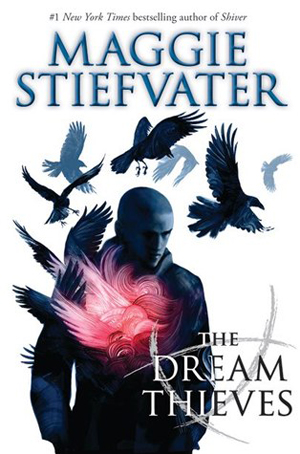
BOOK: I finally got the sequel to The Raven Boys on to my reading schedule last month and it was so, so gooooood. I would say The Dream Thieves is maybe even better than the first book? I continue to not like Adam as much as Maggie Stiefvater wants me to, but everyone else is genuinely awesome and complicated and interesting and Stiefvater continues to effectively and EROTICALLY exploit the female gaze in ways I love. I genuinely cannot wait until the third one comes up in my schedule. AMAZON
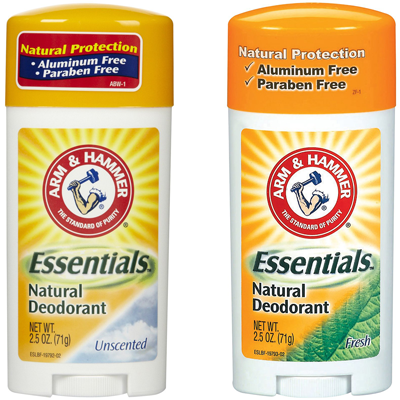
BATH & BEAUTY: I am allergic to traditional deodorants and since I quit wearing them in 2011, I have been on a quest to find a good “natural” deodorant that is 1. not a pain in the ass, 2. effective, 3. cheap, and as most of those efforts have failed, I have mostly accepted that I will usually just be a little smelly. I’m okay with it, Crystal is okay with it, and it’s better than getting huge growths in my pit follicles. Then I found Arm & Hammer’s Essentials and I don’t really smell bad anymore! It doesn’t have aluminum, it lasts all day and through even my long workouts, and it’s magical. The fresh scent is a little toilet cleaner-y, but that doesn’t really bother me and the unscented isn’t really — it’s sort of a light citrus-y smell. I’m in love. AMAZON

STUFF: Goodreads is my favorite uncategorizable thing I loved this month. I finally signed up at the start of the year so I could join the Reading Challenge in hopes that it’d help me hit my 50 book goal for the year and then I decided I’d write reviews of what I read all year too and it’s been really fun! I like seeing what everyone is reading — and how fast y’all read! — and it really has helped me keep up on my challenge. And I’m constantly adding things to my Amazon wishlist because I see other people reading stuff I haven’t heard of. It’s awesome, let’s be friends!
I also really liked this New York Times article about product naming, this A Softer World, this A Softer World, this post at thefrenemy.com, Dear Teen Me, this comic, and retroj.am.
LMAO months later, I realize I forgot one of my most favorite categories: television. Thankfully, I only really watched a couple episodes of Brooklyn 99 and New Girl, so nothing all that new to talk about. Oops.
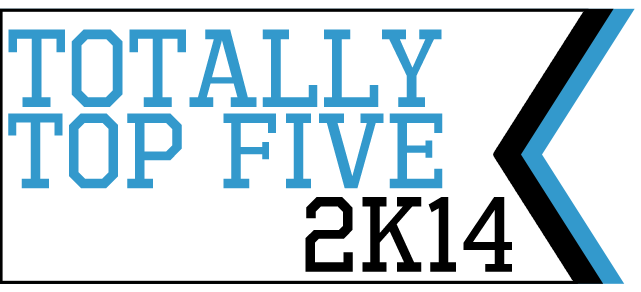
I love reading. Reading is my favorite. But I never read as much as I want to, partially because I get lazy, but mostly because no amount of reading will ever actually be enough for me. More books, always more books.
| 5. Joshua Foer, Moonwalking with Einstein
I really loved Moonwalking with Einstein, which was actually kind of surprising since I didn’t realize it was memoir/non-fiction when I bought it. Because even though I love to read, maybe my reading comprehension isn’t great?
It was funny and fascinating and easy to read and full of the kind of inane trivia that I really love. I like Foer’s voice and the weird characters/champions available to him on the memory circuit. I liked that even as the methods worked for him, he remained skeptical and self-deprecating and that even though he thought it was goofy, he grew to respect and admire the competitors. I love the anecdotes about historically well-memoried individuals!
Most of all, I know I liked the book because I do a lot of my reading at the gym and I kept pulling my headphone out to lean over and tell my girlfriend about all the fascinating things I was learning. That’s a good book.
Also! I can still do a decent job of recalling the first list of items he learns even now, months later1, which is amazing if not utterly useless. |
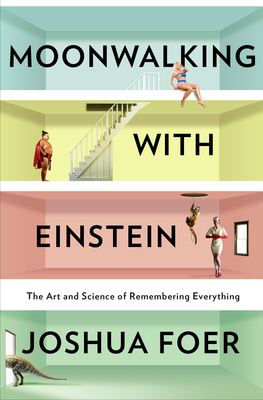 |
| 4. Maria Semple, Where’d You Go, Bernadette
Where’d You Go, Bernadette was the first book I thought of when I started making this list and I distinctly remembering being about halfway through reading it and thinking, “OH, this is totally going in the Totally Top Five.” And it being at number four on the list is really only a sign of how much I loved the things I read this year. Love on top of love on top of love.
The narration is great and the story being structured around documents (emails, etc.) made it feel really fresh and exciting. It had an actual plot! That was engaging! And surprising! And complex, likable characters who I really wanted to spend time with. I don’t know that you’re necessarily supposed to like Bernadette, but I love her and I empathize with her and I kind of want to know her. At least for a little while. I’m not sure that Bee is straight likable either, but you watch her grow and you in turn grow to love her even with her faults. Magic.
Sharp writing, a real story, and characters you care about? Amazing. |
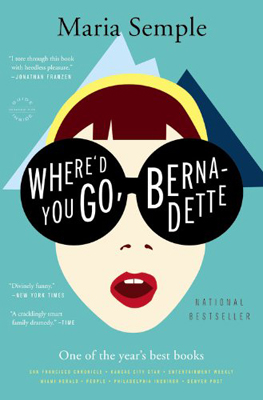 |
| 3. Libba Bray, The Diviners
I don’t remember a lot about The Diviners to be honest. I read it really quickly, over the course of maybe two days, because I absolutely could not put it down. The world was engrossing, the characters flawed but engaging, the plot well-timed, and the mythos built carefully and casually without running into overly long passages of description and exposition. It had a nice, solid resolution despite being the first in a series and it made me want to read more of the world, rather than just leaving me with a million unanswered questions.2
Evie is complicated and she can be annoying and frustrating, but somehow Bray manages to keep her from falling irretrievably from favor and just lets her hover around, figuring out who she is and you end up liking her more than you expect for it. Secondary and tertiary characters can be a little weak, but with Evie so powerfully centered at the heart, that’s not really all that bad.
The Diviners is a coming of age story with a bunch of gory supernatural stuff happening in and around it and it rules. |
 |
| 2. Gavin Extence, The Universe VS Alex Woods
I cried so much reading The Universe VS Alex Woods and I loved it, both the crying and the book. It’s smart and it’s painful and it’s frustrating and funny and it deals with a topic I have never, ever seen addressed by a young adult novel before and it deals with it deftly and honestly without ever veering away from its humanity into an “issues story.”
It reminded me in voice — in all the best ways — of King Dork and Me and Earl and the Dying Girl except it’s smarter than King Dork and more empathetic than Me and Earl and the Dying Girl.
Alex Woods is a good person and a wonderful narrator. Alex Woods is smart and kind and never particularly condescending. Kids have so much to learn from Alex Woods. Adults too. Alex Woods is a little bit my hero. |
 |
| 1. Maggie Stiefvater, The Raven Boys
I loved The Raven Boys. I loved it in a way I haven’t loved something in a long, long time. A long time. It is so lovingly written and so well-plotted and just wonderful to read. Maggie Stiefvater understands and exploits the female gaze like I have never, ever seen a writer manage before. Her descriptions of the boys are tender and beautiful and she manages to make Blue soft and unique without ever making her weak or “not like other girls”3 which is a huge relief.
I liked that it carefully walked the line between otherworldly and realistic, that it felt like I was really experiencing something new as I got deeper into the story, that I was compelled by not only the solid plot, but the rich inner lives of characters I really liked and cared about.
I haven’t read the next book in the series yet — because I am lazy — but I am so looking forward to its turn coming up on my reading list this year. I can’t wait to see the weirdness that’ll come from the story as the magic and mythos starts to really take shape and come to life. |
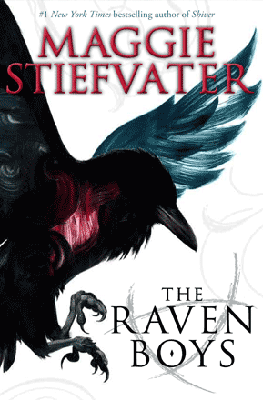 |
Honorable Mentions
 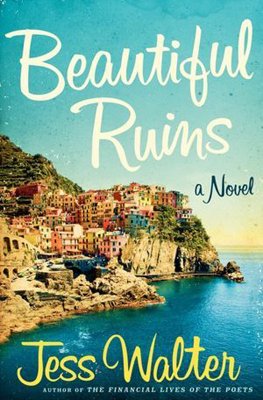   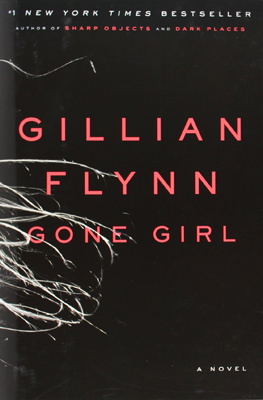
1. Mostly I just like picturing my girlfriend in a giant tub of cottage cheese and that’s what really counts, right?
2. Looking at you, Miss Peregrine’s Home for Peculiar Children.
3. Okay, I will be TOTALLY honest and say that this is a very fine line, but I think Blue manages to stay unique without entering MPDG territory because 1. She was created by a woman, and 2. She is so damn likable.
Previously: 2K12 | 2K13 | JAMZ | MOVIES | BATH & BEAUTY | TV | ALBUMS
Resolution culture is garbage. It is a New Year, but you do not have to be a New You. You are wonderful and you don’t have to change jack shit if you don’t want to.
But if you want to make a change, the New Year isn’t a bad time to, right? New Year, fresh start, all that stuff. You’re the same person you were last year, but with maybe a little extra motivation.
I spent 2014 making some very big and serious changes to my life partially because I got The Cancer, but also because I was well enough to have a full-time job and sort of behave like an actual Adult Human for the first time in my life, which is kind of cool.1
So, since 2015 is upon us and I did pretty damn good making changes last year, I’m taking my New Year’s Motivation and making some resolutions and sharing them with you. Fun, yeah?

1. Write More
I’m a writer! But I basically forget to write. I cram blogs in at the last second and I forget how much I actually enjoy writing them. When I write one blog, I feel urged and excited to write more of them. I should, you know, follow that instinct. I also write fiction! And, to be fair, I verbally and text-message-ually write almost every single day because I tell my girlfriend stories of all shapes and kinds, but I don’t write enough of those stories down. I have a finished novel I should edit and try to, like, sell and another that’s got a solid shape and tons of ideas scribbled down in a million places. I want to do something with them. I love words. I need to write more of them down.
Concrete Goal: Write 100 words a day! Edit/re-write my MFA book.
2. Consume More
I read and watch a pretty fair amount but I want to consume more and I want to consume things more intentionally. I like liking things and I want to find more things to like. Simple.
Concrete Goal: One new movie every two weeks, three new episodes of TV a week, 50 books this year, and more comics! Update listography and goodreads regularly, including a small review for each book I finish this year. Try to hit at least some of these diversity challenges.
3. Keep Moving and Feeding This Body
I work out frequently — sometimes six times a week! — and I have gotten much better at feeding myself in a way that satisfies my body and doesn’t make me miserable. I want to eat burgers and fries for every meal, but it turns out that my gastrointestinal system doesn’t exactly feel great when I do that? Crazy. Also, I kind of like how I feel after I work out. Gross, right?
Concrete Goal: Keep food journaling, meal planning, and going to the gym. Keep on keeping on.
I also want to be less envious and subtweet-y. I hate how often being cranky makes me think everything is dumb, but it’s kind of hard to resolve to like, be an entirely different human being than you are? And to come up with goals more concrete than “Be less of a dick.”
I am going to try to ask myself “Do you really want to say that?” before letting things loose on the world via social media. And also try to think, “That’s nice” when someone is enjoying something, even if I’m not into it. I love enthusiastic and joyful people! I don’t need to be a passive-aggressive bummer. I want to lift people up whenever possible or at the very least try harder not to drag them down, indirectly or otherwise. I am not a beacon of sunshine and I will never be, but I can strive to, you know, shut up a little more frequently when I’m in a mood.
Are you making resolutions? Are they as boring as mine? Did you resolve to become a superhero? That’d be pretty cool, to be honest.
1: I would way, way rather be sitting on my couch marathoning TV shows, but we can’t have everything.
This is a quick update! To report that I am alive and very well!1 and that instead of being wildly busy with being sick and miserable all the time, I am instead very busy with a very boring but fairly well paying full-time job! Where my fiancée is my boss! Which can get kind of weird, but is largely okay!
So, since I have been a very bad blogger and very, very absent and also, to be honest, pretty boring in general — Truly. Are you an insomniac? Let me lull you to sweet sleep with wild tales of reorganizing an entire employee file system! Let me tell you about entering hundreds of insurance claims at a time and then submitting them! Over dial-up! You’ll sleep like a baby. — I thought I’d steal a meme from the awesome Kimmie at That Girl in The Wheelchair that she posted and I saved about a million years ago!
Currently…2
Loving:
To be perfectly honest, the first answer that came into my head was sleep, but that’s boring, so I’m going with 1. Lumosity since breaking up my work day by playing games that are supposed to make me smarter is actually much more enjoyable and useful to me than taking a lunch. 2. This Smith’s Minted Rose Lip Balm because it’s like, the second lip product I’ve ever tried that I thought actually made a difference to my lips. And 3. Bath & Body Work’s Sweater Weather. I know I’ve talked about how much I love this before, but dude, I really love this scent. Soon it will be too wintery to burn any longer and I will mourn it. It is so strong (such a good ~throw) without being overpowering and the scent lingers forever without getting stale. Oh and also, my new glasses!

zennioptical.com3
Reading:
| Just Finished |
Right Now |
 |
 |
 |
 |
| FUN! |
WEIRD! |
GREAT! |
TRASHY!4 |
Watching:
 |
To be honest — and to my dismay — I honestly don’t even know what I watched on purpose last. I haven’t intentionally watched an episode of TV since the end of September and I haven’t seen a movie in theaters since we saw Guardians of the Galaxy on August 1st. Tragedy! We did however manage to get through an entire movie on Netflix last weekend! And a documentary no less! I Know That Voice was super delightful! And fascinating. And definitely worth watching if you have even a passing nostalgia or interest or enjoyment of animated movies. I’m interested in voiceover work anyway, so it was particularly interesting to me. Love seeing the faces that go to the voices. And we’re going to see Big Hero 6 tomorrow! And also I watched a bunch of eps of The Mindy Project and that is pretty fun.
|
 |
Oh, and also this. On repeat.
Listening to…
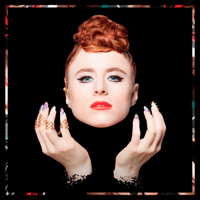  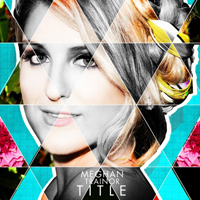
  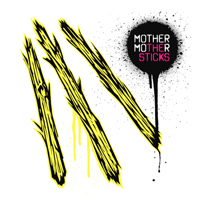
 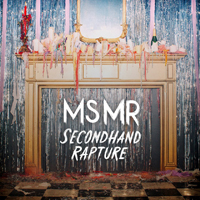 
Working on…
The answer to this question should be: my finished book that needs editing, my next book that needs writing, the book after that that’s in need of conceptualizing, my screenplay, my other screenplay, the dozens of projects I have in lists everywhere, but mostly I am working on trying to get better at adulthood. It turns out that managing time is really hard and trying to have a life while working 8-10 hour days is, like, actually difficult? Last time I had a full-time job, I was too depressed to care if I ever had any fun or leisure, so this time around it’s at least an improvement!
I am also working on a post about what I’ve been up to since my last update (The Twin Cities! Great food! Yellowstone! A new puppy!) and the Totally Top 5 series for 2K14! Oh, and I’ve also been posting the #holidayjamz I normally upload to my tumblr (who Cease-and-Desisted me to death! Thanks, Stevie Wonder!) as Youtube links to my twitter instead with #holidayjamz2k14 because the holiday season begins November 1st and if you can’t take that… well, suck it.

1: Cancer treatment is going very well! Can’t use the word remission until I have a hysterectomy, but my oncologist is very chill about waiting for surgery and very confident that we caught the stuff early. Woo!
2: What I’m currently reading/watching/listening to is always over there on the right hand side of the site. I update it fairly regularly even!
3: I am ~feeling a LARGE number of the frames from Warby Parker, but I didn’t like any of the ones in my first home try-on (at least on my face, they looked great off) so I am hesitant to take the plunge and order the ones I really want, since they don’t even have a home try-on option. Free returns and all, but nail-biting! We’ll see how the next box goes.
4: “Her [REDACTED] became a gourd of hot syrup, spilling into Dominik’s mouth.” So, yeah.
|
|


 JAMZ: Okay, so I spent most of February playing “Uptown Funk” and Azealia Banks’ “212” on repeat, but I also got super into SBTRKT’s “Wildfire” which is best played at near ear-splitting volume while doing a kind of flailing, loose-limbed dance that involves far too much ribcage. March was spent listening to my extensive love song playlist while we ready wedding stuff, but it also brought me “Fade into You” from Nashville which I found in the comments of a wedding playlist post. It’s like… goth country, romantic and lingering. So pretty.
JAMZ: Okay, so I spent most of February playing “Uptown Funk” and Azealia Banks’ “212” on repeat, but I also got super into SBTRKT’s “Wildfire” which is best played at near ear-splitting volume while doing a kind of flailing, loose-limbed dance that involves far too much ribcage. March was spent listening to my extensive love song playlist while we ready wedding stuff, but it also brought me “Fade into You” from Nashville which I found in the comments of a wedding playlist post. It’s like… goth country, romantic and lingering. So pretty.
 ALBUM: Working full-time has totally destroyed my music finding and album listening. I’ve turned into a single-loving repeater and a safe-for-work Pandora station listener. But! I have revisited Natalia Kills’ Trouble quite a bit since it’s on my phone and it’s just a great listen, especially in the car with the windows down now that the temperature is often above 40! “Rabbit Hole” is my jam. I’ve been hitting this best of Miles Davis because I frequently turn to jazz when I’m feeling stressed, since lyrics can make me feel overwhelmed while I’m working. “Blue in Green” is a forever fave.
ALBUM: Working full-time has totally destroyed my music finding and album listening. I’ve turned into a single-loving repeater and a safe-for-work Pandora station listener. But! I have revisited Natalia Kills’ Trouble quite a bit since it’s on my phone and it’s just a great listen, especially in the car with the windows down now that the temperature is often above 40! “Rabbit Hole” is my jam. I’ve been hitting this best of Miles Davis because I frequently turn to jazz when I’m feeling stressed, since lyrics can make me feel overwhelmed while I’m working. “Blue in Green” is a forever fave.
 MOVIE: Crys and I both really loved Gone Girl and I was so grateful to see that they fixed some of the things I’d found so lackluster/frustrating about the book. I thought Rosamund Pike was fantastic and can’t wait to see Carrie Coon in more stuff. Gone Girl was great, but Whiplash I really loved. In the first few minutes I thought this was going to be one of those media experiences I hate, where I am frustrated utterly for the main character and end up furious, but the payoff in this is so intensely, weirdly satisfying. I want to watch Miles Teller mouth “Fuck you” while drumming angrily until I’m dead. And then it should be the holographic projection that runs over my grave 24/7.
MOVIE: Crys and I both really loved Gone Girl and I was so grateful to see that they fixed some of the things I’d found so lackluster/frustrating about the book. I thought Rosamund Pike was fantastic and can’t wait to see Carrie Coon in more stuff. Gone Girl was great, but Whiplash I really loved. In the first few minutes I thought this was going to be one of those media experiences I hate, where I am frustrated utterly for the main character and end up furious, but the payoff in this is so intensely, weirdly satisfying. I want to watch Miles Teller mouth “Fuck you” while drumming angrily until I’m dead. And then it should be the holographic projection that runs over my grave 24/7. 
 BOOK: When You Reach Me is the best and most moving book I’ve read thus far this year. It’s got a great narrating lead and excellent secondary characters and a rich plot and wonderful details and, like I said on Goodreads, I wish so badly that I had written it. What an awesome, perfectly, gently devastating book. I did not love The Paper Magician, but I did enjoy reading it more than, I think, every other book I read in March. I thought the magic was interesting, but found the characters lacking. There was some great anticipatory romance stuff — I even got kicky-feet! — but it played out too easily and too quickly. I prefer some torture with my romance, thank you, but still a fun read.
BOOK: When You Reach Me is the best and most moving book I’ve read thus far this year. It’s got a great narrating lead and excellent secondary characters and a rich plot and wonderful details and, like I said on Goodreads, I wish so badly that I had written it. What an awesome, perfectly, gently devastating book. I did not love The Paper Magician, but I did enjoy reading it more than, I think, every other book I read in March. I thought the magic was interesting, but found the characters lacking. There was some great anticipatory romance stuff — I even got kicky-feet! — but it played out too easily and too quickly. I prefer some torture with my romance, thank you, but still a fun read. TV: The Parks and Recreation finale was so, so good and was so sweet and so positive which is what the show always was when it was at its best. I’ve talked about how much I love P&R plenty before, but that finale was a really wonderful way to end a really wonderful show.
TV: The Parks and Recreation finale was so, so good and was so sweet and so positive which is what the show always was when it was at its best. I’ve talked about how much I love P&R plenty before, but that finale was a really wonderful way to end a really wonderful show. We’ve also been watching Unbreakable Kimmy Schmidt on Netflix, slowly, and I really love it. I think relentless positivity in the face of adversity is just something I’m really attracted to generally and I love how well Ellie Kemper’s face carries it off. Kimmy wears everything on her sleeve and I love watching her react to the world around her. I also love Jane Krakowski — generally of course, but particularly in this — because even she isn’t immune to Kimmy’s positivity. The speech she gives her stepdaughter about leaving Kimmy alone was like, genuinely moving. So good.
We’ve also been watching Unbreakable Kimmy Schmidt on Netflix, slowly, and I really love it. I think relentless positivity in the face of adversity is just something I’m really attracted to generally and I love how well Ellie Kemper’s face carries it off. Kimmy wears everything on her sleeve and I love watching her react to the world around her. I also love Jane Krakowski — generally of course, but particularly in this — because even she isn’t immune to Kimmy’s positivity. The speech she gives her stepdaughter about leaving Kimmy alone was like, genuinely moving. So good. BATH & BEAUTY: I grabbed a couple of the Kate Moss by Rimmel matte lipsticks while we were in Billings in mid-February and I have been obsessed ever since. But, like, I can’t find them anywhere on the entire internet, which is genuinely terrible. I bought a deep red, a Ruby Woo-esque red, and an amaaaaaazing nude (#104, if you happen to see these somewhere!) that has pretty much replaced my usual Revlon ColorBurst Balm Stain in Honey as my MLBB because it’s matte. They have a weird-ish perfume smell, but I love them so much I don’t really care and will definitely grab some back-ups if I see them in stores again.
BATH & BEAUTY: I grabbed a couple of the Kate Moss by Rimmel matte lipsticks while we were in Billings in mid-February and I have been obsessed ever since. But, like, I can’t find them anywhere on the entire internet, which is genuinely terrible. I bought a deep red, a Ruby Woo-esque red, and an amaaaaaazing nude (#104, if you happen to see these somewhere!) that has pretty much replaced my usual Revlon ColorBurst Balm Stain in Honey as my MLBB because it’s matte. They have a weird-ish perfume smell, but I love them so much I don’t really care and will definitely grab some back-ups if I see them in stores again. STUFF: Despite the oil slow-down, we’re is still expanding and we got a Culver’s recently, which rules and their Chocolate Covered Strawberry Concrete Mixer is pretty much the most best thing I’ve eaten in forever. Their custard is rich, but not overly sweet, and the combination of strawberry and chocolate is perfect. The beeeeeeeeeeeeest.
STUFF: Despite the oil slow-down, we’re is still expanding and we got a Culver’s recently, which rules and their Chocolate Covered Strawberry Concrete Mixer is pretty much the most best thing I’ve eaten in forever. Their custard is rich, but not overly sweet, and the combination of strawberry and chocolate is perfect. The beeeeeeeeeeeeest.



































